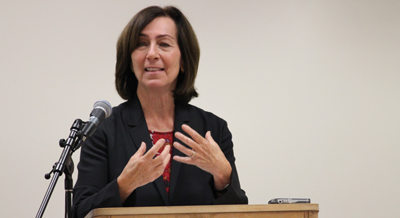The FEC declined to answer Progress for America’s request for advice by a vote of 4-2 (Chairman Toner, Cmm’r von Spakovsky dissenting), calling it “past action, rather than present or intended activity.” Nov 21, 2006 Letter from FEC General Counsel Lawrence H. Norton to Benjamin L. Ginsberg. As Norton admits, “PFA … asked whether … two advertisements planned for broadcast … media will be ‘expenditures’ under the Act.” Id.
PFA made its request in August 2006, saying it planned to spend about 70 percent of its budget by Nov. 4, 2006 communicating its position on issues of importance to the general public. PFA specifically noted that “The uncertainty over what speech the FEC believes is actionable combined with … PFA’s desire not to violate the law or become entangled in protracted enforcement actions is having an impact on when and how the groups can and will spend their funds. This cloud is dampening fundraising.” Ginsberg Follow-up Letter of September 22, 2006.
But the Commission did not answer Ginsberg until after November 4, 2006. Said Norton:
PFA … represented that the proffered advertisements would be aired before November 4, 2006 … and through the general election in 2008.
Based on the Commission’s review of publicly available information … it appears that the two advertisements were not aired … prior to the November 7, 2006 election. Consequently, the spending projections for 2006 … did not materialize. … Therefore the request appears to concern … past plans rather than present or future activity [and is unsuitable for an advisory opinion].
The reasonableness of Norton’s position depends on the level of immunity a requestor is given once a request is made. But the Commission’s rules provide none. Indeed, 11 CFR 112.6(c) indicates that it is only a Commission-issued advisory opinion later reconsidered that provides cover to a requester, indicating, by fact of its omission in the regulations, that pending requests not yet granted offer no such cover. In other words, Ginsberg had no representation from the Commission that PFA would avoid jeopardy had it taken the very measures Norton says were required to validate its opinion request.
The Commission, of late, is misreading McConnell to move from bright-line express advocacy to “reasonable person” express advocacy while grafting PASO-gloss onto core provisions of FECA. As Ginsberg rightly noted, this is creating “uncertainty.” That the Commission now will answer only the requests of those with the guts to risk jeopardy leaves no certainty at all.













